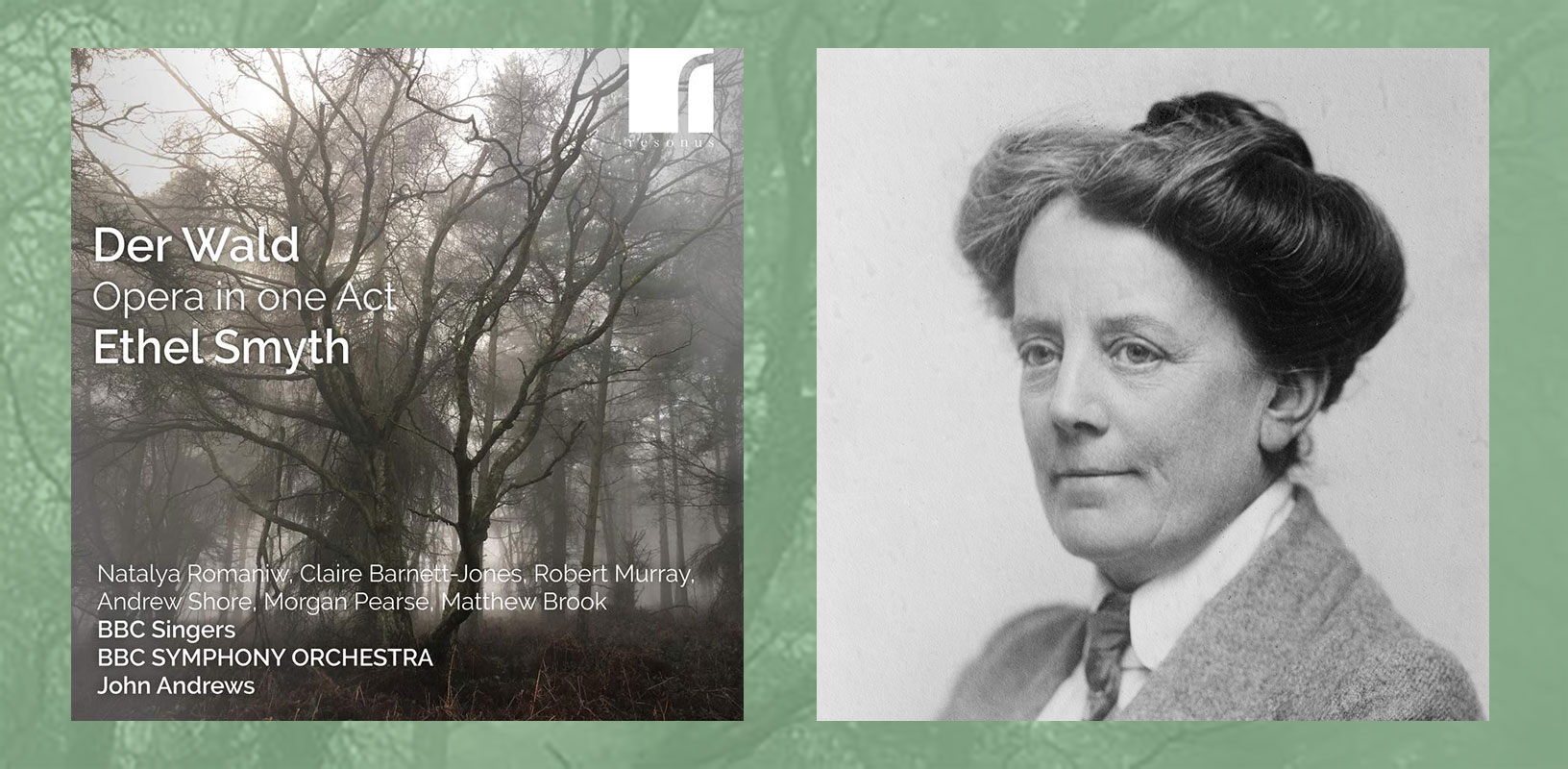OPERA SEARCH
Ethel Smyth’s opera Der Wald released on Resonus Classics

This month sees the release of the first recording of Ethyl Smyth’s compact opera Der Wald - a great public success for the composer when first staged in Berlin, London and New York. The Resonus Classics recording is conducted by John Andrews and features Natalya Romaniw and Robert Murray in the leading roles.
Continuing the renewed interest in the music of Ethyl Smyth, Resonus Classics has released the first recording of her one-act opera Der Wald (The Forest), premiered in Berlin in 1902 and performed at Covent Garden in London. The following year brought a successful staging at the Metropolitan Opera, marking a significant first for women composers, that was not to be repeated at the New York house for over a century. The new recording sees John Andrews conducting the BBC Symphony Orchestra and BBC Singers, with lead roles sung in Smyth's own English translation of the original German libretto by a strong cast including Natalya Romaniw, Robert Murray, Claire Barnett-Jones and Andrew Shore.
In the opera’s prologue, wood spirits sing of the peace of the eternal forest. The action begins on the day before the wedding of Röschen with the young woodcutter Heinrich. Peasants celebrate the happy event and buy trinkets from a pedlar to give to Röschen, who sings of her happiness. Suddenly a weird horn-call is heard: it signals the sinister Iolanthe, mistress of Rudolf, the local Landgraf. Heinrich comes to find Röschen, bringing with him a forbidden present: a newly killed deer, which they hide down the well. The lovers look forward to the morrow, and Röschen goes into her cottage. Iolanthe next comes upon Heinrich and, impressed with his good looks, attempts to lure him into her service. He refuses and she vows vengeance. Her chance comes when the deer is revealed in the well. Iolanthe forces Heinrich to choose between going with her, or suffering the penalty for killing the deer. He chooses the latter, and her huntsmen stab him. In the epilogue, the wood spirits resume their commentary on the transience of human concerns.
The 65-minute opera makes it ideal for staging in a double bill, with original pairings including I Pagliacci and somewhat surprisingly the complete Il Trovatore, with other more realistic suggested possible couplings including one of Puccini’s Trittico operas, Walton’s The Bear, or Ravel’s L’Heure espagnole. The flavour of Der Wald is very close to the folk imbued world of German Romantic opera, or Dvorák’s Rusalka – in no doubt due to Smyth’s Central European studies in Leipzig and her immersion in the German music scene of the times. The recording’s conductor John Andrews, who has done so much to revive neglected British operas from that period, explains in a Gramophone interview:
“It’s an incredibly Germanic piece: a tale of the supernatural set in a forest. So for the critics, Smyth was either too Wagnerian or not Wagnerian enough. The music around the potion scene – where you’ve got a horn melody and harp – is certainly redolent of Wagner; but only inasmuch as anything written in the late 19th century is influenced by Wagner… Like Humperdinck, she starts with music that’s very tonal and in a recognisable folk idiom; there are dances, and even the initial forest music is in a luscious, Romantic style. But then the further you go into the forest, the darker it gets, the more expressionistic it becomes – the stranger the harmonies, the more angular the rhythms, the more experimental the orchestration.”
Andrews notes further in an Opera Today interview: “There are some fantastic protagonists, particularly Röschen, Iolanthe and Heinrich. These are show-piece roles. The opera may be short, but Smyth goes from 0 to 60 in a couple of minutes! The whole of the journey of the Romantic hero and heroine is here, condensed into super quick time… a terrifically compact one-acter. Smyth retains the dramatic intensity, so it’s a really strong piece of theatre. No scene is more than ten minutes long, and she powers her way through, from episode to episode. There’s a relentless sense of purpose.”
Der Wald was the second of Smyth’s six operas, including The Wreckers that was successfully revived at Glyndebourne and Houston Grand Opera in 2022.
Alongside Ethel Smyth’s Der Wald, you can explore other works by women composers published by Boosey & Hawkes on our website.
> Further information on Work: Der Wald
Photo of Ethyl Smyth: Wikimedia Commons

